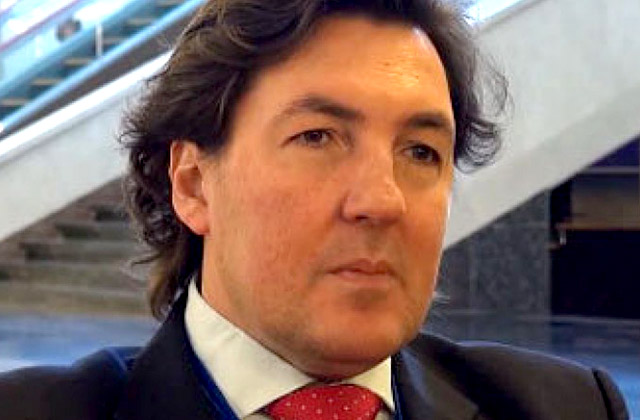F.Mogherini’s Visit to Armenia-Good Opportunity for Armenia’s Ruling Elite

Against the background of reviewing the policy of Eastern Neighborhood, European Union actively buckled down with the Republic of Armenia towards development of new Armenia-EU framework document. Negotiations on trade and investments have been launched on February 15 in Brussels.
Armenian delegation comprising of representatives of RA Ministries of Economy, Justice, Finance, Nature Protection, Labour and Social Affairs, as well as CBA and other institutions, participate in Armenia-EU collaboration, led by Garegin Melkonyan, first Deputy Minister of Economy of the Republic of Armenia.
European delegation is headed by Petros Sourmelis, head of Unit, Russia, CIS, Ukraine, Western Balkan, EFTA, EEA and Turkey. Negotiations are being held around formerly clarified fields and directions with the European party, in particular, trade of goods and service, trade protection means, technical hindrances of trade, sanitary and phytosanitary measures, protection of intellectual property rights, competition, state purchases, stabile development, transparency, current payments and flow of capital, investment cooperation and their protection, settlement of disputes and etc.
According to Information and Public Relations Division of RA Ministry of Economy, generally, the first round of negotiations is rather comprehensive and inclusive, except plenary sessions, more than 12 meetings of negotiation subgroups are scheduled, during which plans for texts of due directions should be discussed. Some issues on further negotiations, stages, schedule, as well as future sectoral cooperation will also be covered. At the new phase opened for Armenia -EU ties, official visit by Federica Mogherini, High Representative of the European Union for Foreign Affairs and Security Policy, to Armenia is anticipated. Eduardo Lorenzo Ochoa, head of European Friends of Armenia, in an interview with 168.am stated, that Mogherini’s visit is a brilliant indicator for Armenia-EU ties. According to our interviewee, RA ruling elite may productively handle the visit and appear with proposals.
-After a two-year crisis in Armenia-EU relations, new round of Armenia-EU talks has already started. Mrs Mogherini is going to pay an official visit to Armenia during this new stage, after Ukrainian conflict, which revealed many problems in EU Eastern Neighborhood policy. To your mind, with what kind of suggestions or agenda is Mrs Mogherini going to visit Armenia? What should we wait for?
Firstly, I would like to say that despite the circumstances, the last two years were still quite productive regarding EU-Armenia relations. Let’s not forget that during that period two additional parliamentary political forces joined their respective EU political families. This means that all political forces currently present in the Armenian Parliament are “aligned” with their European counterparts, which represents concrete and strong links in the EU-Armenia political sphere. On the other hand, in the course of that time Armenia was granted access to the European Union programs and Agencies, and the visa facilitation and readmission agreements got into force.
Coming to Ms. Mogherini’s visit, I understand that first it is a sign of the excellent relations that the EU and Armenia enjoy. In addition, I also think it is a good opportunity for the Armenian administration to show again a strong political will to the new agreement being negotiated and to continue implementing reforms, and thus propose a set of areas of common interest, where joint work between EU and Armenia can make a difference for the country.
-Mr. Eduardo, parties have already started negotiations on a new comprehensive political and economic agreement. Obviously, Armenia is restricted in developing economic and trade relations with the EU, but there is information that new document will have economic and security components as well. How do you assess start of this new stage in Armenia-EU ties?
Trade will indeed be included in this new framework. The EU is Armenia’s first trade partner, accounting for around 27% of Armenia’s exports. This is a fact and it is also a fundamental part of EU-Armenia relations. The new legal base will certainly reflect this reality and will word it in a way that will be compatible with Armenia’s international commitments. It is noteworthy, that Eurasian Economic Union (EEU) treaty does not cover all trade-related areas; some of them are not included. Therefore, EU and Armenia might cooperate in spheres such as trade facilitation, as they are not part of the EEU agreement.
Moreover, the review of European Neighbourhood Policy presented 18 November 2015 provided important information concerning economic cooperation.
Countries like Armenia, which didn’t sign a DCFTA with the EU will be able to jointly determine attractive and realistic alternatives to promote cooperation, and strengthen trade and investment relations that reflect mutual interests. This could take the form of Agreements on Conformity Assessment and Acceptance (ACAAs), which allow free movement of industrial products in specific sectors and may be used in the area of technical regulations, standards and conformity assessment.
Regarding security, the EU’s cooperation proposal to its neighbours is mostly focused on security sector reform, border protection, tackling terrorism and radicalisation, and crisis management, as well as energy security.
Finally, I am optimistic about this new phase of EU-Armenia relations, as negotiations will not start from scratch. Quite the opposite, they will work on what has already been built and, therefore, we should be able to expect concrete results in a reasonable period of time.
By Araks Martirosyan

























